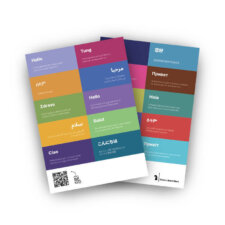Religion and State
Switzerland has been traditionally influenced by the Christian religion. The cantons determine the relationship between religion and state. Like most German-speaking cantons, Canton Basel-Stadt recognises some religious organisations as public institutions. In effect, the state grants them certain rights, such as to collect taxes from their members. The following religious organisations are recognised under public law in Canton Basel-Stadt: the Evangelical Reformed Church, the Roman-Catholic Church, the Christian Catholic Church and the Israelite Community. A number of other communities are recognised at the cantonal level. These are organised under private law.



